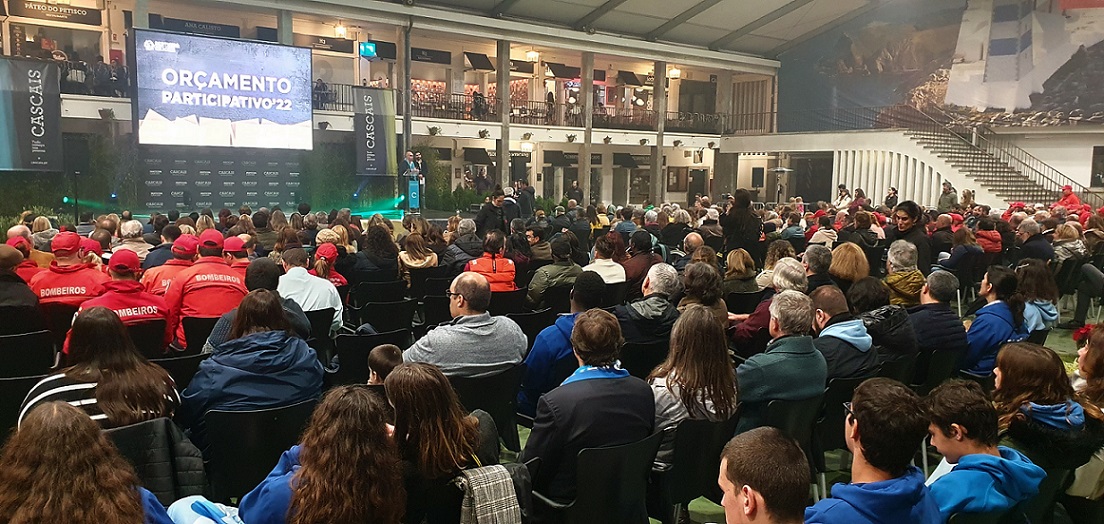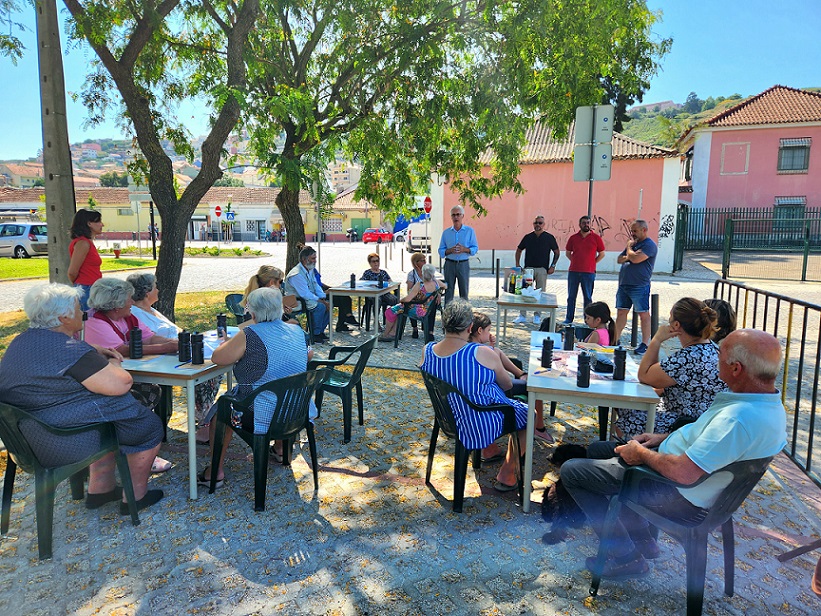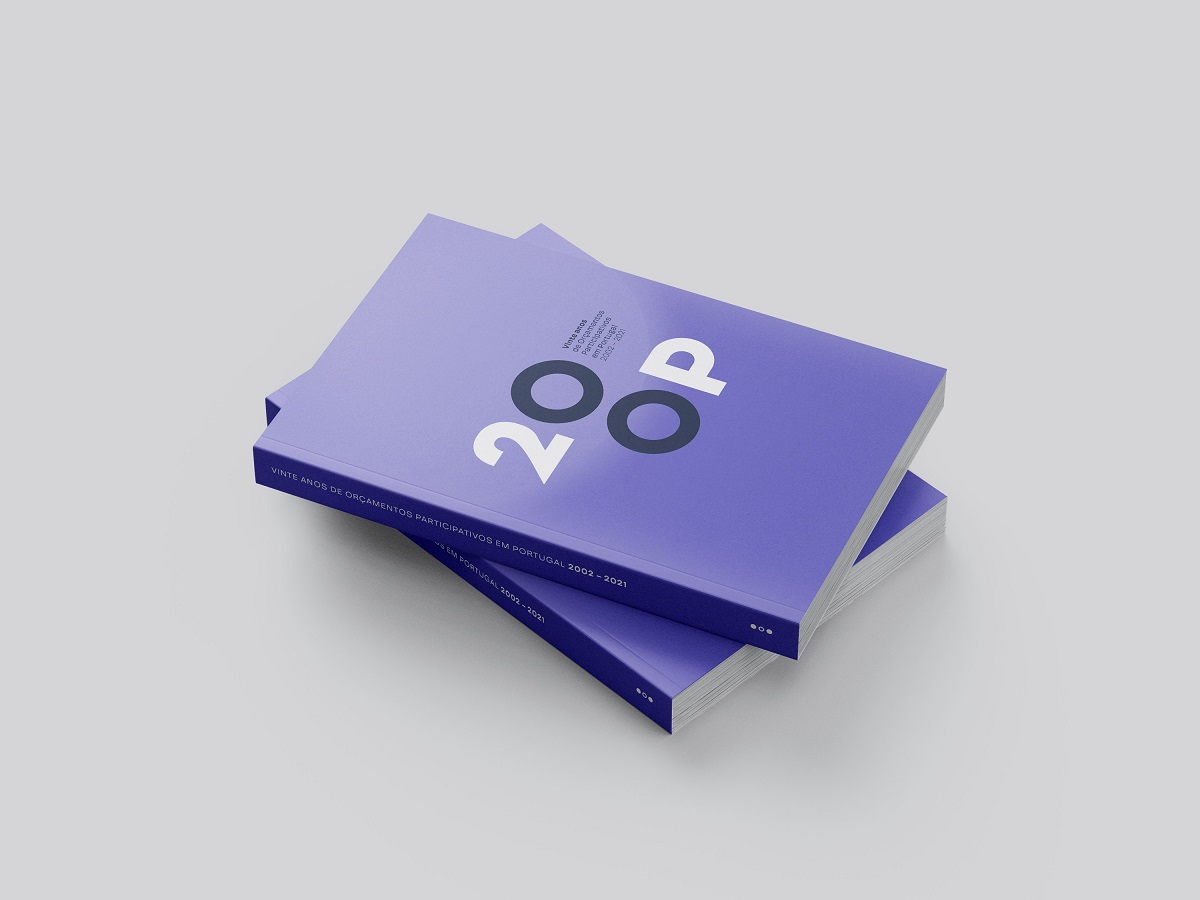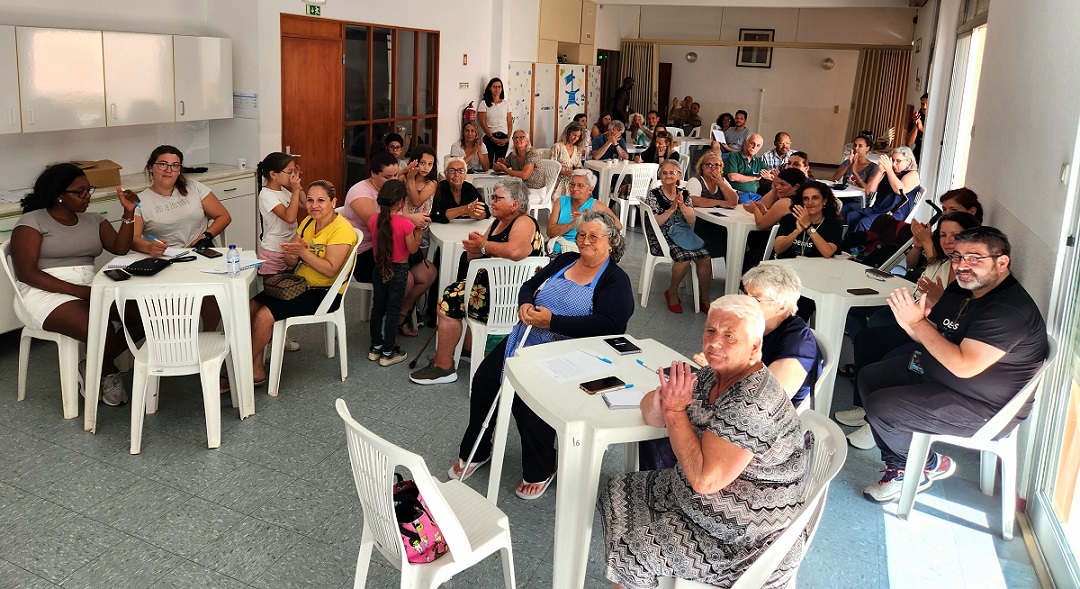Participatory Budgeting (PB) has developed in other countries far beyond what English politicians are willing to discuss. Portuguese activists have produced valuable compendia in English of how to do effective PB, without reproducing existing inequalities. Some local councils in England have realised that they can act without waiting for the Westminster talking shop.
 Graham Douglas
Graham Douglas
PB has been working in Europe for a long time, where community-based approaches are seen as desirable in contrast to the timidity often displayed by English politicians, even during the present crisis. This initiative in Paris is a striking example although not explicitly part of PB.
Nelson Dias has been committed professionally to developing PB for 30 years, focusing on the importance of thorough discussions to develop realistic implementations of agreed needs. He has been employed as a consultant by the UN in Cape Verde, the World Bank in Mozambique, Mexico, the Russian Federation and various Portuguese local authorities. English-speaking readers interested in the full scope of PB worldwide can refer to the impressive guide he has co-authored, entitled Hope for Democracy, and another compendium the PB Atlas.
A recent initiative in two areas, near Lisbon, is the development of PB in micro communities, such as municipal public housing neighbourhoods. Two young residents of the neighbourhood – the PB ambassadors – have received training to join the coordination team for this initiative.
Two London Boroughs, Newham and Brent, have been featured in newspaper articles about PB recently: both are Labour-run.
Brent is currently reviewing their progress on PB and felt that now was not a good time for an interview.

Sadia Ur-Rehman discusses the PB model that Newham has chosen to implement.
People can begin a change without waiting for Westminster.
I spoke to Nelson and Sadia for The Prisma by email.
In 2015 Portugal had the highest % of municipalities with PB experience, yet in your 2020 report it has one of the lowest levels of satisfaction with politics in the EU – how much has PB contributed positively?
The last two decades have been marked by recurring crises, international terrorism, the 2008 financial crisis, the Covid-19 pandemic and the current war in Europe. All this impacts on the development of austerity policies and the consequent loss of rights and quality of life, leading to loss of trust in institutions. However strong PB may be locally, it was not created to compensate for negative trends at national or global level. Our case studies show that people trust the PB participants more than the elected officials who promote it.
Do politicians use PB to defuse voter frustration, by keeping them occupied with local issues, and offering very limited shifts in power?
I see two distinct realities in the universe of participatory budgets here. One is characterised by innovation, by the will to experiment with more intense forms of exercising democracy and sharing power.
PB has demonstrated that grass-roots voluntary commitment can spread creatively through society and at all levels of government where, in many cases its projects have become public policy.
In doing so, Portugal is being recognized as a leader in political innovation and PB contributes to realising Article 2, of the Portuguese Constitution of deepening participatory democracy.
 However, some local governments have preferred the path of domesticating public participation, removing its intensity and potential for change, yet aiming to strengthen public confidence in the Administration. This unwillingness to face change has resulted in restricted and localized success, and many such processes have survived for less than one electoral mandate.
However, some local governments have preferred the path of domesticating public participation, removing its intensity and potential for change, yet aiming to strengthen public confidence in the Administration. This unwillingness to face change has resulted in restricted and localized success, and many such processes have survived for less than one electoral mandate.
Can PB work democratically on a small budget?
The quality of the deliberative process is much more important than money: it can make the difference between effective power sharing or mere cosmetic manipulation. During Covid a lot of PB was online which does not allow proper exchange of ideas. Better a €1 million budget with regular face-to-face meetings than €2 million administered online as a box-ticking exercise.
New electronic platforms for managing PB make the process simpler to manage, privileging the individual involvement of each citizen, in a remote relationship with the Administration, but fracturing participation and avoiding the building of collective action and community organisation.
You recognized that PB can produce both innovative and reactionary initiatives without a wider strategy.
Yes, without strategic direction and vision. But we can’t expect PB to transform everything, if the extreme right is provoking a politics of hate and division.
Can PB be protected from party political disputes?
 PB was introduced in Councils run by the Portuguese Communist Party in 2002, but in a purely consultative way, the local authority proposed initiatives and made the decisions, not the electorate.
PB was introduced in Councils run by the Portuguese Communist Party in 2002, but in a purely consultative way, the local authority proposed initiatives and made the decisions, not the electorate.
By 2012 people had become disillusioned. Our campaigning had a catalytic effect in some Councils, which soon resulted in others copying them. Both main parties in Portugal have embraced PB, so political interference is not a problem now.
You mentioned the problems of ‘sectorialization’
This is when PB is only used for one issue, chosen by the municipality. It is a mistake for a PB with limited funding to try to solve three problems at once: deepening democracy, strengthening trust in the institution and solving a sectorial problem in local life. A lot of dreaming for so little reality.
The social dimension is very important. What do you mean by this?
It is a concern to integrate excluded and marginalized groups into local decision-making: women, disabled people, immigrants, refugees and homeless people among others. EU countries have been less concerned with this than Latin American countries, especially Brazil.
It is a serious issue, because without addressing it, PB may simply reproduce the same inequalities that existed beforehand. Our study on participation showed that intentional mechanisms are necessary to involve these groups.
The Newham Approach: Sadia Ur-Rehman
 Consultative PB or Deliberative PB: which model has Newham chosen and why?
Consultative PB or Deliberative PB: which model has Newham chosen and why?
Newham has chosen the Deliberative Participatory Budgeting model as part of its People Powered Places (previously known as Community Assemblies) programme (PPP).
Running since 2018, it is part of the Mayor and her Administration’s commitment to participatory democracy and the belief that working with communities can lead to better services and outcomes for residents and the borough as a whole.
It is one of the largest participatory budgeting programmes in the UK and empowers residents to directly decide how to spend a public budget (funded by the Neighbourhood Community Infrastructure Levy) and encourages them to shape their local priorities through deliberation. It operates across eight community neighbourhoods allowing residents to propose ideas that address these priorities and transform them into potential project applications.
The deliberative process runs throughout the programme cycle. People discuss and deliberate on local priorities, vote on the projects they wish to see implemented in their local areas, and actively contribute to delivering the successful projects. Through Deliberative Participatory Budgeting, we aim to deepen resident engagement, facilitate meaningful deliberation, and enable communities to allocate funds based on their aspirations, priorities, and solutions.
The PPP programme has been successful in unlocking new approaches to tackling issues and has realised impactful projects across the borough. To date the funding has reached 209 resident groups, charities, social enterprises, and faith, voluntary and community organisations.
 This demonstrates that our communities possess valuable knowledge, skills and assets, and that residents are well-equipped to understand their needs, address issues and enhance their neighbourhoods.
This demonstrates that our communities possess valuable knowledge, skills and assets, and that residents are well-equipped to understand their needs, address issues and enhance their neighbourhoods.
What is the relationship between People Powered Places and PB?
The programme is closely intertwined with participatory budgeting in Newham.
It has evolved and improved over time based on participant feedback, recommendations from evaluations, and the desire to enhance community engagement.
One significant outcome of the programme’s first cycle was the proposal to increase available funding, which was also suggested by the Independent Democracy and Civic Participation Commission. The increase implemented makes Newham’s PPP programme one of the largest PB initiatives in the country. Currently, each of our eight community neighbourhoods has £100,000 of Neighbourhood Community Infrastructure Levy (NCIL) funds allocated annually to invest in projects that align with local priorities.
The Newham Co-create digital platform played a crucial role in increasing participation, by allowing residents to vote on projects and allocate funding. In July 2022, 2,835 residents utilised the platform to allocate funding to over 70 projects, which are implemented in collaboration with local residents, voluntary, community and faith organisations and the council. However, we also recognise that in-person events and engagement are essential to engage a broad range of community groups, including those who may not be familiar with digital tools.
 The programme strives for accessibility by establishing local People Powered Places in each of Newham’s eight community neighbourhoods. This decentralised approach improves accessibility, making it easier for residents to participate and engage with the programme on their doorstep.
The programme strives for accessibility by establishing local People Powered Places in each of Newham’s eight community neighbourhoods. This decentralised approach improves accessibility, making it easier for residents to participate and engage with the programme on their doorstep.
Additionally, hybrid events are organised to increase accessibility, allowing residents to join from their homes. For individuals with limited time availability, the Newham Co-create platform offers a convenient online participation option with just a few clicks.
Through the programme, residents are given the opportunity to vote on local priorities. Each community neighbourhood identified three or four priorities co-produced with residents, and all funded projects over the past 2 years have been required to address these priorities. This exercise not only involves residents in decision-making but also informs the council about the most significant priorities for Newham’s residents. Recently, new priorities for each neighbourhood for 2023-2025 were established in alignment with the council’s corporate plan through streamlined resident input.
If you want to find out more about the programme click here: People Powered Places – Newham Council.
(Photos supplied by Nelson Dias and authorised for publication.)












.jpg)












